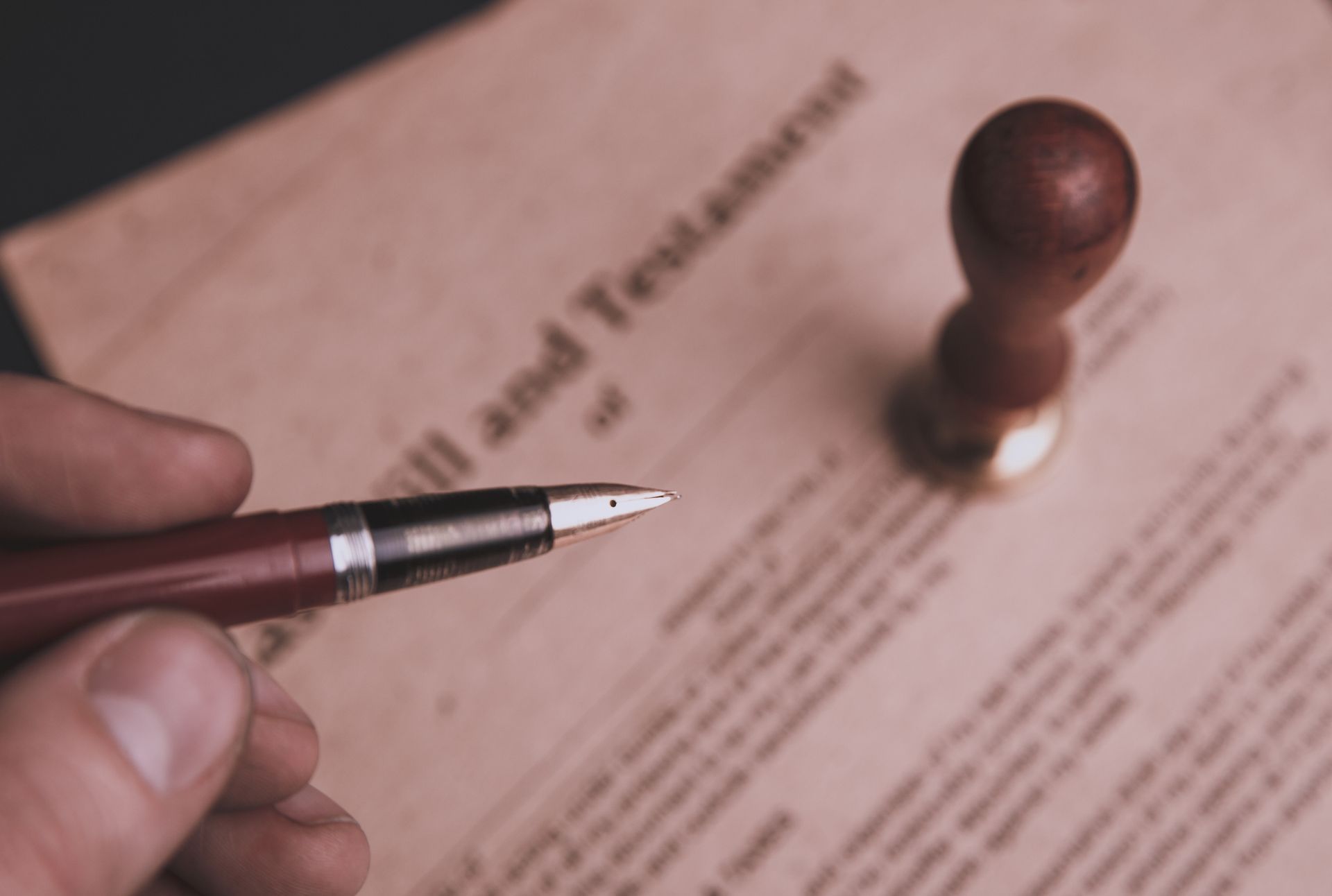Can an unsigned will be valid.
Is a will that hasn’t been signed or dated properly invalid?
The easy bit first: a will does not have to be dated to be valid. In Australia, none of the Acts governing the requirements for a valid will require it to be dated. It is, of course, a very good idea to date a will, not least because a dispute may otherwise arise (if there is more than one will) as to which one was made last.
The requirements for a valid will are (in all states and territories of Australia) that the will be signed by the will maker in the presence of two witnesses (some Acts require both the witnesses and the will maker to all be present at the same time, but others permit the second witness to sign later). Again, as a matter of practice, it is a good idea that everyone is present at the same time as this safeguards against allegations of impropriety.
Very often, wills are not signed properly: sometimes there is only one witness and sometimes none. Occasionally, wills get signed by the wrong person (the husband signs the wife’s will by mistake, the wife the husband’s will by mistake). In all of these situations, wills have nevertheless been upheld as valid.
In each State and Territory, legislation exists that permits otherwise invalid wills to be admitted to probate. These provisions are generally referred to as ‘dispensing powers’ (that is, they dispense with the usual formal legal requirements required to make a will).
In Western Australia Section 32 (2) of the Wills Act relevantly provides that: a document may be admitted to probate, if it is:
A document purporting to embody the testamentary intentions of a deceased person, even though it has not been executed in the manner required by (the Wills Act)… if the Supreme Court is satisfied that the person intended the document to constitute the person’s will.. “
The courts have interpreted this to mean:
There must be a document;
The document must purport to embody the testamentary intentions of the Deceased;
The court must be satisfied that, either, at the time of the document being brought into being, or, at some later time, the Deceased, by some act of words, demonstrated that it was his or her then intention that the document should, operate as her, or his, will.
Lawyers commonly refer to such documents as “informal wills”.
In every case it is a question of the intention of the person making the will: did the person making the document intend it to be his will? Sometimes the intention is readily inferred from the circumstances: for example, if a person buys a will kit (you know, the ones you get from the newsagency headed “Legal will” or similar), completes it, signs it and then tells someone (or sometimes ‘everyone’) that they ‘have made a will’, such a document is quite likely to be admitted to probate even though it is not witnessed by two witnesses (or even dated). However, as with most things in the law, ‘it all depends’ on the circumstances- if the person had previously had a will prepared by a solicitor then it could be inferred that they knew that the will should be signed by two witnesses and a court may well be reluctant give probate of the ‘informal will’ . Similarly, if the person was in the habit of telling people that “I’ve made a new will” (when they hadn’t really) then the court would be reluctant to infer that the will was anything but a draft and was not intended to be a final will.
Common circumstances in which ‘informal wills’ are made (and either are or are not admitted to probate) are:
Suicide Notes
Sadly, these arise quite often. Sometimes they are admitted to probate, sometimes they are not. It usually depends on the wording and whether or not there is a valid existing will (if there is a formal valid will, the suicide note is less likely to be admitted to probate).
Draft wills prepared by solicitors.
It sometimes arises that a person instructs a solicitor to prepare a will. The person sees the lawyer and the lawyer sends a draft (hopefully) only a few days later to the will maker with the request that they advise of any amendments and otherwise ‘come in and sign the will’. Fate intervenes and the will maker dies before the appointment to sign the will (or even having had the opportunity to make an appointment to sign).
If the will maker has acknowledged the correctness of the draft (for example, by ringing or telling the lawyer that ‘the draft is fine’) then there is a good chance the will may be accepted into probate.
If the will maker never sees the draft (before death) then it is less likely that the document would be accepted into probate.
This means that there are cases where a document is accepted into probate even though it has not been signed by the will maker.
This entry was posted in Uncategorized on April 8, 2016.


